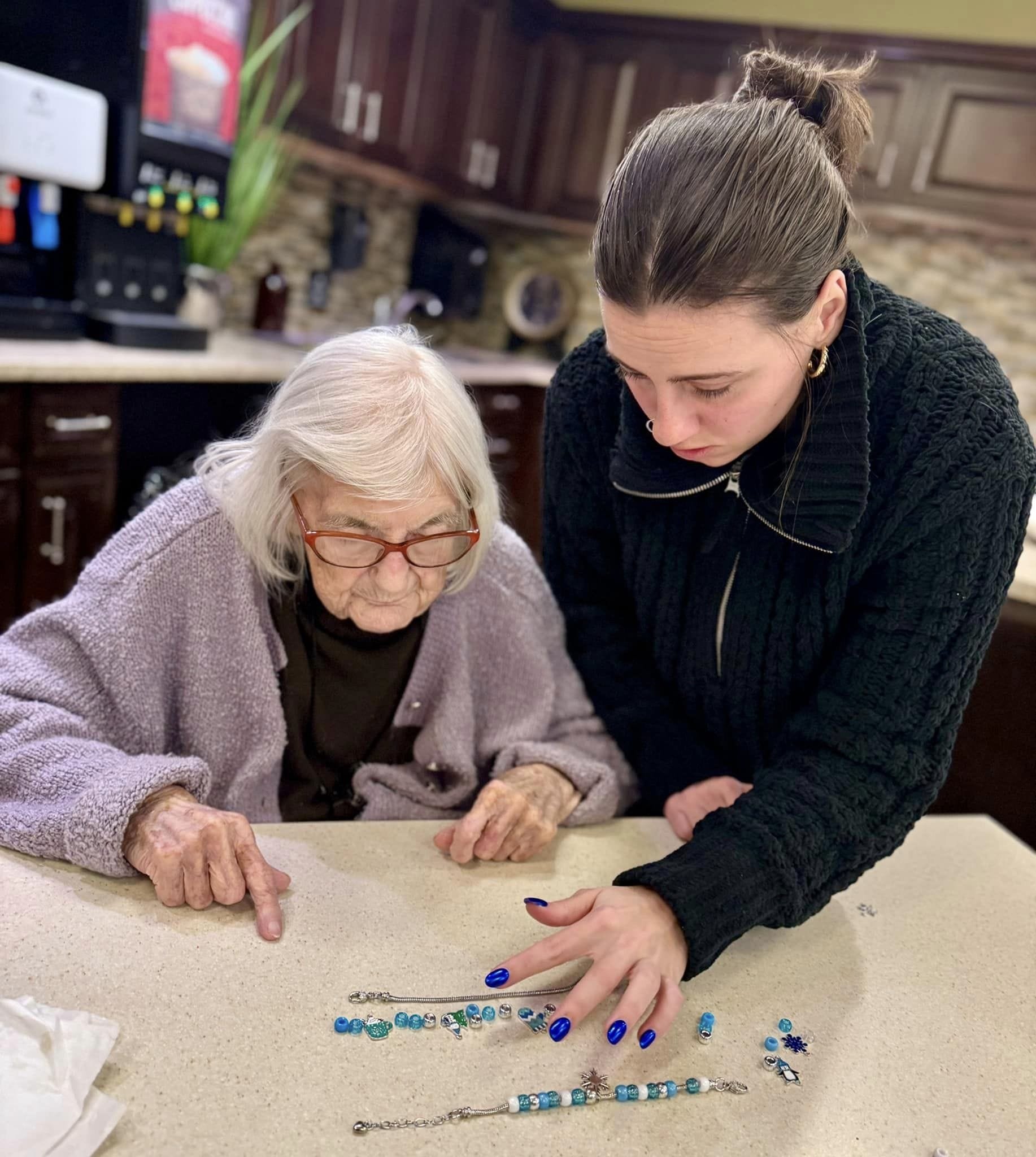Comprehensive Family Members Help Readily Available with Alzheimers Care Charlotte
Comprehensive Family Members Help Readily Available with Alzheimers Care Charlotte
Blog Article
Professional Tips for Offering Quality Alzheimer's Care in your home
Taking care of a private with Alzheimer's illness in your home presents special obstacles that require both understanding and critical preparation. Developing a structured daily routine, enhancing interaction abilities, and producing a risk-free setting are necessary components of effective caregiving. Furthermore, caregivers must not forget the significance of looking for exterior assistance and resources to maintain their very own health. As we check out these professional pointers even more, it comes to be clear that a thoughtful approach can substantially influence the lifestyle for both the caretaker and the private receiving treatment. What certain techniques can be applied to ensure a supportive environment?
Understand Alzheimer's Illness
Alzheimer's condition, a modern neurodegenerative problem, profoundly influences cognitive feature and daily living activities. It largely affects memory, thinking, and actions, bring about a steady decline in the abilities essential for independent living. Early signs often include forgetfulness, problem in problem-solving, and challenges in completing acquainted tasks. As the condition progresses, individuals may experience disorientation to time and location, damaged judgment, and adjustments in state of mind and individuality.
The etiology of Alzheimer's is intricate, involving the buildup of amyloid plaques and tau tangles in the brain, which disrupt neuronal interaction and lead to cell death. Threat variables consist of age, genetics, and lifestyle selections, with the bulk of cases taking place in people over 65. Awareness of these elements is vital for caretakers, as comprehending the condition can promote much better support and care approaches.
Moreover, Alzheimer's condition not only impacts the individual but likewise has significant emotional and logistical effects for households. Acknowledging the phases of the condition enables caregivers to prepare for challenges and adapt their approach, making sure that the needs of those impacted are met with empathy and understanding. This fundamental expertise is vital for promoting high quality care at home.
Develop a Regular
Creating a structured everyday regimen can substantially enhance the lifestyle for people living with Alzheimer's condition. Establishing constant patterns helps to decrease confusion and anxiety, offering a complacency and experience. An everyday schedule should consist of routine times for dishes, activities, and rest, which can help people expect what to expect throughout the day.
Integrating basic, familiar tasks right into the routine can promote a feeling of accomplishment and freedom. Activities like horticulture, food preparation, and even basic family duties can be valuable. It is vital to customize these activities to the person's capacities and interests, ensuring involvement without irritation.
Furthermore, flexibility within the routine is vital. While uniformity is crucial, permitting changes based on the person's state of mind or energy degrees can assist maintain a favorable atmosphere. Motivate engagement in social interactions, whether through family members check outs or neighborhood tasks, as these can supply excitement and link.
Enhance Communication Abilities
Efficient communication is essential for maintaining meaningful connections with people dealing with Alzheimer's condition. As cognitive capabilities decrease, traditional discussion might become difficult. Caretakers need to adjust their communication approaches to promote understanding and connection. Alzheimers Care Charlotte.

Show real passion by keeping eye get in touch with and responding to acknowledge their feelings or ideas. Rather, confirm their emotions and reroute the discussion gently if required.
Making use of aesthetic aids, such as images or written reminders, can also improve comprehension. Encourage engagement in activities that promote discussion, such as thinking back regarding past occasions or browsing image cds.
Create a Safe Atmosphere
A supportive setting plays a considerable duty in the well-being of people with Alzheimer's condition. Developing a safe home setting is necessary to minimize dangers and enhance the high quality of life for both the individual and their caregivers. Begin by evaluating the home for possible threats. Get rid of stumbling threats such as loosened carpets, electric cables, and mess. Make sure that paths are clear and well-lit to avoid drops.
Set up safety and security locks on doors and home windows to stop wandering, which is a typical problem in Alzheimer's people. In addition, consider utilizing non-slip floor coverings in shower rooms and mount grab bars for added support. Labeling spaces and essential products can assist people browse their environments more conveniently.
Emergency situation get in touches with must be clearly published near phones, and a clinical alert system can provide comfort. Think about using childproofing actions for dangerous compounds and sharp things. Regularly inspect smoke alarm and carbon monoxide gas alarm systems to ensure they are functioning. Generally, customizing the home atmosphere to the distinct demands of the individual with Alzheimer's websites not just advertises safety and security yet likewise urges self-reliance and comfort.
Look For Assistance and Resources
Accessing assistance and resources is crucial for individuals and caregivers encountering the obstacles of Alzheimer's disease. Caregiving can be overwhelming, both literally and emotionally, and it is crucial for caretakers to look for support to maintain their health and give high quality care.

Furthermore, checking out respite care choices can afford caretakers much-needed breaks, permitting them to reenergize and reduce burnout. This may include adult day programs or in-home care services. Monetary support programs may additionally be readily available to help offset the prices of care.

Conclusion
In recap, offering top quality Alzheimer's care at home necessitates a multifaceted strategy. Comprehending the intricacies of the disease, developing an organized regimen, enhancing communication abilities, creating a risk-free setting, and looking for support from available sources jointly add to boosted caregiving experiences. Carrying out these strategies not only fosters a sense of independence and success for individuals with Alzheimer's however likewise alleviates caregiver anxiety, ultimately improving the lifestyle for both caretakers and those they support.
Caring for an individual with Alzheimer's illness at home presents distinct challenges that need both understanding and critical planning.Additionally, Alzheimer's illness not just impacts the individual yet also has substantial emotional and logistical ramifications for households.Developing a try these out structured day-to-day routine can dramatically improve the quality of life for people living with Alzheimer's disease.Reliable communication is important for maintaining meaningful links with people living with Alzheimer's disease. Alzheimers Care Charlotte. Executing these strategies not only cultivates a sense of self-reliance and achievement for people with Alzheimer's however likewise reduces caregiver anxiety, eventually enhancing the quality of life for both caregivers and those they support
Report this page